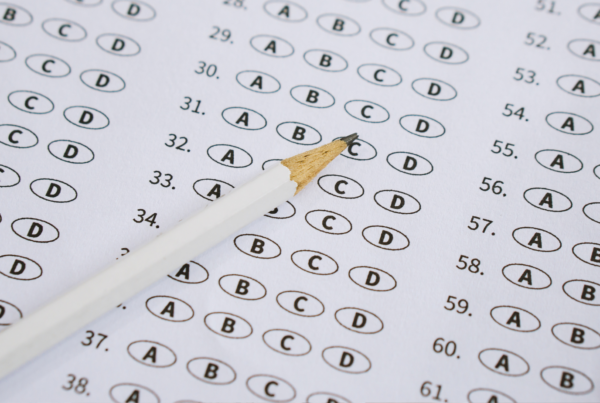 By Eric Lynne
By Eric Lynne
When introducing students to the personal statement for college admissions, I like to help students understand what a personal statement is and what a personal statement is not. The personal statement is a weird genre that is frustratingly unspecific and straight forward at the same time. The Common App provides 7 open-ended prompts, a type of freedom that can be paralyzing. And with only 650 words to communicate who they are, this essay gives students limitations that can be stifling. It is hard for students to decide what they should write about and how they should write it.
Though a single blog post cannot dispel all of the rumors and ambiguity surrounding the personal statement, there are few things students show know right off the bat. Below, I dismiss three common myths about the personal statement that hopefully clarifies this essay’s importance, purpose, and approach.
Myth: The personal statement is the most important piece of the application.
Reality: The personal statement is just one important piece of the application.
As students head into college application season, the importance of the personal statement gets inflated. Because it is the biggest speed bump during that time—a major time-suck and stressor of the application process—students and their families start to think that the personal statement is the thing that will get their students into the college of their dreams.
That simply is not the case. Depending on the school, the personal statement might not even be the most important essay required in the application. Many schools put as much (if not more) weight on how well the student responds to other required supplemental essays.
The personal statement, in reality, is just one important piece of the application. When polled, college admissions departments actually tend to rank the essay well below other parts of the application, namely a student’s proven performance in college prep courses, course rigor, standardized test scores, and overall GPA (in sum, the student’s academic profile).
While students should do their best on their personal statements, it is important to recognize that it is just one piece of the application—not some sort of magical key that will unlock the doors to the college of their dreams.
Myth: The personal statement should always highlight your greatest achievements.
Reality: The personal statement should highlight who you are.
One of my favorite college essays of the past admissions cycle started with the following line: “I am really good at failing.” Through an essay that highlighted his failures—particularly on the basketball court—this student was able to write an essay full of humor and insight, an essay that showed off the traits that made him a unique student eager for the challenges awaiting in college. Admissions departments loved it.
Personal statements are not a bragging contest. Instead, a personal statement should, above all, be personal. The personal statement should reveal who you are. What makes you tick? How do you think? What traits do you possess that make you unique? What do you care about and why do you care about it?
Therefore, good personal statements can come from anywhere. In fact, many of the best essays are not about a student’s most exciting moments or greatest achievements; instead they are about eating Nutella, sorting Pokemon cards, birding with septuagenarians, playing chess, and training a stubborn horse—all real topics that made for super successful essays. Any topic that allows the student to present who they are is a good topic.
Myth: The personal statement should be written in a highly academic style, maintain a formal tone, and use elevated language.
Reality: The personal statement should be written in your authentic voice.
The personal statement is not an academic paper or report where the author’s voice can be distracting to the informational text. The personal statement also isn’t a vocabulary contest. Some students fall into the trap of trying to impress colleges with their ability to use words they came across in their word-a-day calendars. I would advise against that. Attempting to use sesquipedalian prose can be detrimental if students end up using these ten-dollar words incorrectly—not to mention, can make the student come off rather snobbish, as if throwing around the word sesquipedalian somehow makes you superior.
Colleges are interested in your authentic self, and the best way to present who you are is by using your authentic voice.
Writing with an authentic voice doesn’t mean being a lazy writer, though. On the contrary, preparing a statement in your own voice can be even more difficult and take even more time. In my experience, students are much more used to writing in an academic style, as that’s what they’ve been practicing and perfecting in school. Breaking students out of that mold and some of the rules that come with it (e.g. the classic 5-paragraph essay) is a big part of the coaching we do at Galin Education. Colleges still want to see that a student has control over the fundamental aspects of writing: grammar, spelling, syntax, etc. But within those basic conventions, students have to prepare a statement that allows their personality to shine through their writing.





